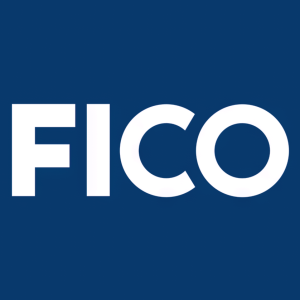FICO Survey: 1 in 3 Indonesian Consumers Blame Banks for Scam Losses
Rising scam incidents and low expectations for refunds highlight growing pressure on banks to act
Highlights:
-
While some consumers acknowledge personal responsibility, more than a third blame either the sending bank (
15% ) or the receiving bank (19% ) -
69% of scam victims will complain to their bank, while8% will escalate to a regulator if unsatisfied with the bank’s response -
Conversely,
69% of consumers would feel positive about their bank if it proactively declined a payment that had been identified as part of a scam
A new survey by global analytics software leader FICO reveals the significant risks Indonesian banks face as scams rise and consumer expectations shift. According to FICO’s 2024 Scams Impact Survey:
In addition,
“Fraud prevention is no longer just a compliance requirement—it’s a key factor in customer trust and loyalty,” said Dattu Kompella, managing director in
Consumers Expect Protection, Not Payouts
While refund policies are a growing focus for regulators worldwide, Indonesian consumers appear to have unusually low expectations when it comes to refunds. According to the survey, nearly 6 in 10 (
“This data turns the refund debate on its head,” added Kompella. “Indonesian consumers are pragmatic—they don’t expect refunds, but they do expect their banks to act as a shield. That means leveraging technology, data, and real-time decisioning to prevent scams before the money leaves the account.”
Consumers Demand Stronger Scam Prevention Measures
Across
And while
“Indonesian consumers want their banks to be active partners in the fight against fraud,” added Kompella. “This is a crucial opportunity for banks to strengthen their defences and proactively protect consumers. By doing so, banks not only safeguard their customers' finances but also reinforce their reputation as trusted protectors.”
Proactive Fraud Prevention Drives Positive Sentiment
The survey also shows that proactive scam prevention builds consumer trust.
“Effectively combating scams requires more than just good intentions—it demands intelligent systems,” concluded Kompella. “Technologies like AI-driven analytics, real-time decisioning, and contextual engagement empower banks to act quickly and precisely, delivering targeted warnings or triggering step-up authentication or suspending a transaction before it's completed.”
FICO’s survey was conducted in 2024 by an independent research company. It surveyed 1,001 Indonesian adults, along with approximately 11,000 other consumers across 14 countries, to explore their experiences regarding RTP usage, scams, and their banks’ scam prevention capabilities.
About FICO
FICO (NYSE: FICO) powers decisions that help people and businesses around the world prosper. Founded in 1956, the company is a pioneer in the use of predictive analytics and data science to improve operational decisions. FICO holds more than 200 US and foreign patents on technologies that increase profitability, customer satisfaction and growth for businesses in financial services, insurance, telecommunications, health care, retail and many other industries. Using FICO solutions, businesses in more than 80 countries do everything from protecting 4 billion payment cards from fraud, to improving financial inclusion, to increasing supply chain resiliency. The FICO® Score, used by
Learn more at https://www.fico.com
Join the conversation at https://x.com/FICO_corp & https://www.fico.com/blogs/
For FICO news and media resources, visit https://www.fico.com/newsroom
FICO is a registered trademark of Fair Isaac Corporation in the US and other countries.
View source version on businesswire.com: https://www.businesswire.com/news/home/20250407448167/en/
RICE Communications for FICO
fico@ricecomms.com
Saxon Shirley
FICO
+65 9171 0965
saxonshirley@fico.com
Source: FICO







